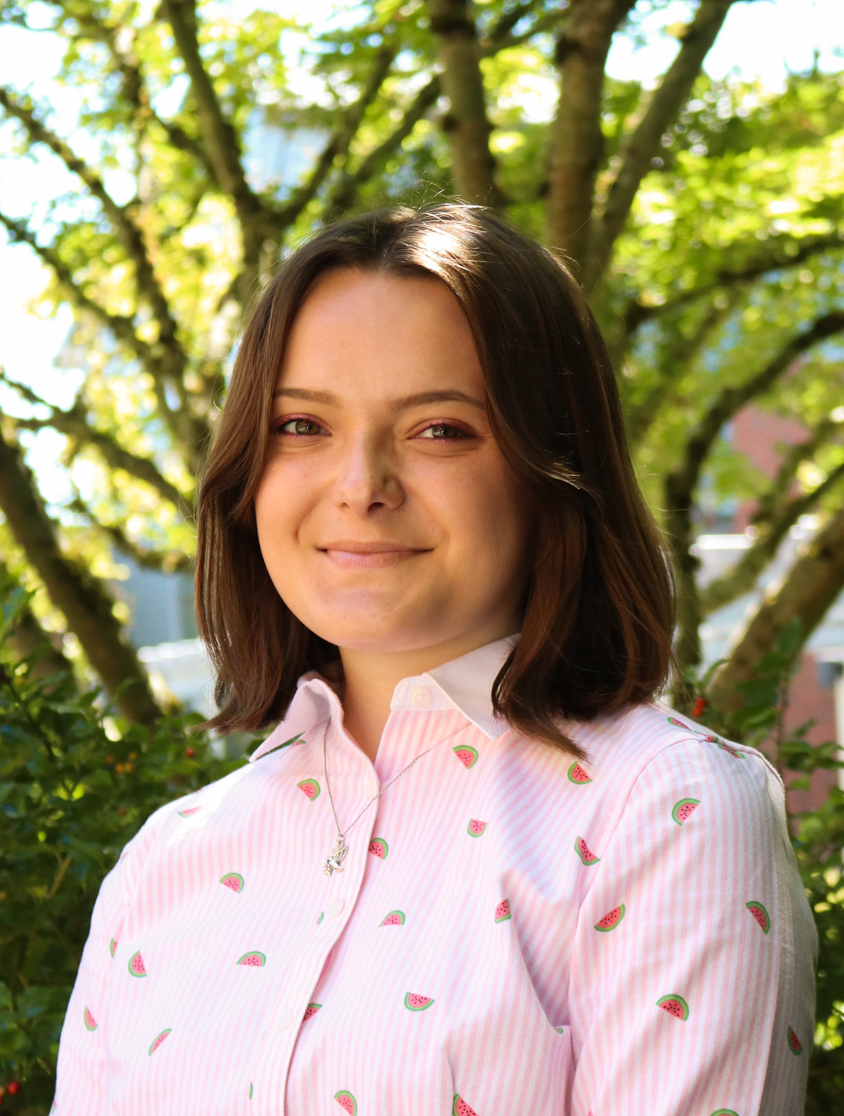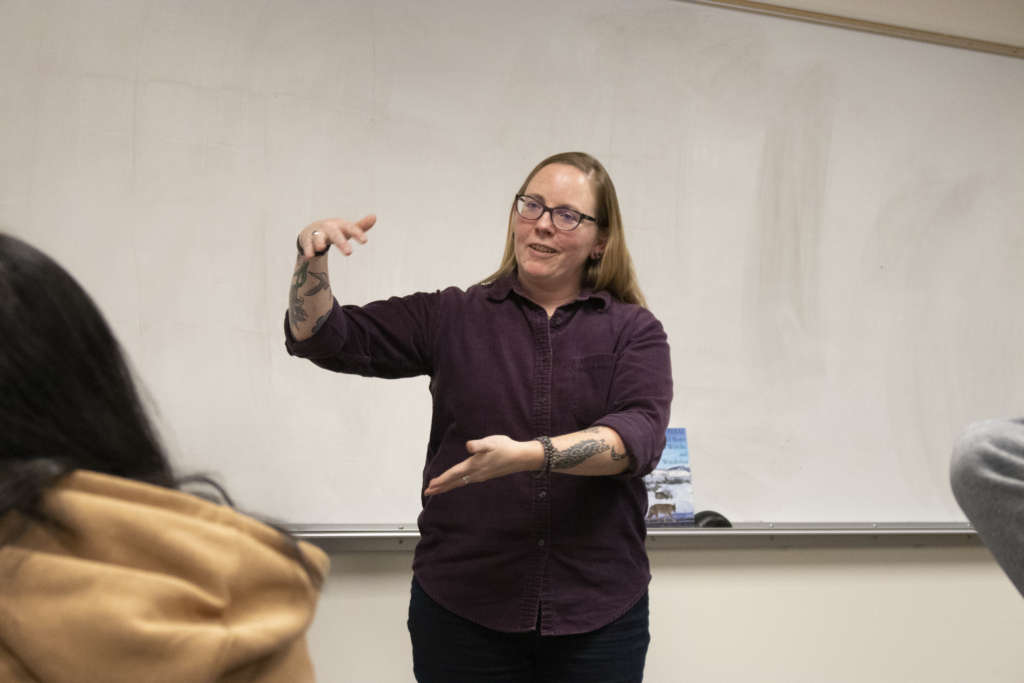Nature is something the Pacific Northwest is known for and some choose to use it as their muse. Authors can communicate their shared experience between themselves and the natural world through their written works. The Creative Writers Series hosted Heather Durham, a naturalist author living in the Pacific Northwest, to discuss her latest nature essay collection called, “Going Feral: Field Notes on Wander and Wanderlust.”

Durham has a background in environmental biology and fine art. She currently works at the Wilderness Awareness School located in the Cascades near Seattle.
As a student for the Wilderness Awareness School about 13 years ago, Durham participated in an adult program class where people are taught to connect with nature on a deeper level.
“It was an intensive naturalist training program that also has survival skills and various parts of the curriculum, that were kind of unique, different from your traditional environmental education program,” Durham said.
Often referring to herself as a “bird nerd,” she teaches a bird language course that focuses on a holistic way of learning about the species in their environment.
With an extensive background in ecology, naturalism and environmental education, Durham enjoys writing creatively about her own experiences in nature. However, she did not always want to become a writer. Durham has past experience with environmental jobs that encouraged her to try creative writing.
She encouraged students to collaborate and seek out interests from their own environment and learn more about them.
“Things that I’ve seen before at other schools is, if there is some sort of ecology or environmental, if there’s those programs, there will be people who are interested in that kind of stuff. Something that can become a work study project, or even a club of getting folks together, doing things like a learning garden or a food corner store,” Durham said. “That’s the best part about colleges and universities, there are people interested in just about anything.”
Durham revealed that continuously learning from nature can improve aspects of life, while encouraging people to remain curious and question their observations.
“I do think for climate change, and for all the environmental issues right now, it’s so easy to get overwhelmed, of course, and hopeless. And I do feel like nature connection needs to come back as a basis for folks that aren’t connected at all. If people aren’t connected, with their own senses and their own experiences, they’re not going to want to, they’re not going to care in the way you care about someone or something you love.” -Heather Durham
“The more I learned, the more fascinating it all was. And so, that is just what nature does, our brains and our bodies are so hungry for it, that’s where we evolved, our whole humanity came out of that so were primed to get back to it, to learn it again,” Durham said.
During her presentation, she showed students how the power of observation in nature can cause a person to grow, change, and appreciate the world around them.

Durham explained that learning around nature can be helpful for some in their education and difficult for others, depending on what people connect with most in their lives. She said this is especially true when learning about the environment in a classroom versus in nature itself. People can understand things around them based on what favors their own perceptions. Durham addressed this strategy when discussing the effectiveness of education styles when it comes to climate change or ecology.
“I do think for climate change, and for all the environmental issues right now, it’s so easy to get overwhelmed, of course, and hopeless. And I do feel like nature connection needs to come back as a basis for folks that aren’t connected at all,” Durham said. “If people aren’t connected, with their own senses and their own experiences, they’re not going to want to, they’re not going to care in the way you care about someone or something you love.”
Mallory Hobson, a senior majoring in digital technology and culture and minoring in creative writing, attended the event for English 499. Hobson explained that she enjoyed Durham’s literary voice and passion for nature, as well as her process for memory recollection.
“I would say it’s definitely inspiring, it makes me think a lot about parts of my own childhood, or parts of my life that maybe I did not pay as much attention to. Like nature walks when you’re a little kid, or even walking here on campus we have Salmon Creek, that offshoot running right through the middle of campus. It’s something we so often overlook, it makes me start thinking about how I can get in touch with maybe not my absolutely feral side, but a little wilder,” Hobson said.

Professor of creative writing at WSU Vancouver, Howard Aaron, organizes the Creative Writers Series for both students and the public to attend.
Aaron explained that writing creatively from nature, similar to Durham’s process, is about personal interpretation. He said that teaching at WSU Vancouver while the seasons change serves as an environment you can always explore.
“You’re part of this grand world, it’s not just a campus. Not like an inner city campus, you see the mountains and the snow, and you know the volcano is alive. You know we’re alive, it’s the same kind of thing,” Aaron explained.
The creative writers series will continue February through April at 7 p.m. in the Library Building.

Olivia is a senior studying English at WSU Vancouver.
